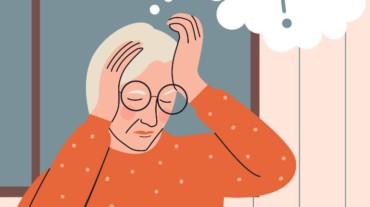
According to a new study, older adults who start losing both vision and hearing may be at an increased risk of developing dementia. The findings of the study were published in the online issue of Neurology, the medical journal of the American Academy of Neurology. The study highlighted that losing some hearing or eyesight is often a part of getting older, but losing function in both senses may put you at greater risk of dementia and cognitive decline years later.
However, the study did not find such a link between losing just one of those senses. “Depending on the degree of hearing or vision loss, losing function in your senses can be distressing and have an impact on your daily life,” said study author JinHyeong Jhoo, M.D., Ph.D., of Kangwon National University School of Medicine in Chuncheon, Republic of Korea. Jhoo added, “But our study results suggest losing both may be of particular concern.”

The study looked at 6,520 people between the ages of 58 and 101. Visual and hearing impairment was determined by a questionnaire asking about using glasses or hearing aids. People rated their hearing as “normal,” “reduced, but able to communicate without a hearing aid,” “difficult communicating with a hearing aid” or “no hearing at all.” People rated their sight as “normal,” “reduced, but able to view newspaper or TV without wearing glasses,” “unable to view newspaper or TV with glasses” or “no sight at all.”
At the beginning of the study, 932 people had normal seeing and hearing, 2,957 had either visual or hearing impairment, and 2,631 said they had both impairments. Dementia was more than twice as common in the group with both impairments at the beginning of the study. In that group, 201 people out of 2,631, or 8 per cent, had dementia at the start of the study, compared to 2.4 per cent with one sensory impairment and 2.3 per cent with no sensory impairment.
Researchers evaluated people’s thinking and memory skills every two years for six years using a test that includes word recall and recognition. Then they analysed the relationship between having a hearing or vision impairment and dementia and having both impairments and dementia. During the six-year follow-up period, 245 people developed dementia. Of the 1,964 people with both impairments, 146 developed dementia, compared to 69 of the 2,396 people with one impairment and 14 of the 737 people with no impairments. In addition, 16 out of 142 people who could not determine whether they had a sensory impairment developed dementia.
After adjusting for factors like sex, education and income, researchers found that the group with both hearing and seeing impairment were twice as likely to develop dementia than the group with normal sensory function. People with just one impairment were no more likely to develop dementia than those with normal sensory function. In addition, the decline in thinking test scores was steeper among people with both hearing and vision impairment.

Jhoo said that further research is needed to explain why people with two impairments have a greater risk for dementia than those with one. “Older people with only a visual or hearing impairment can usually still maintain social contact, so they may not feel be as isolated or depressed as people who have both impairments,” Jhoo said.
Jhoo added, “However, when someone has both impairments, that may increase the risk of isolation and depression, which previous research has found may affect dementia risk and thinking skills later on.”
A limitation of the study is that participants completed a questionnaire about their hearing and vision. Not having objective measures of people’s hearing and vision could have affected the study results.
Select Topics of your interest and let us customize your feed.
PERSONALISE NOW